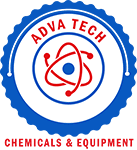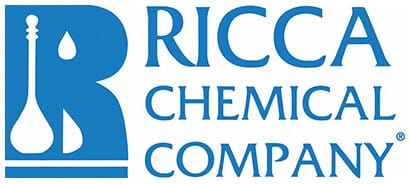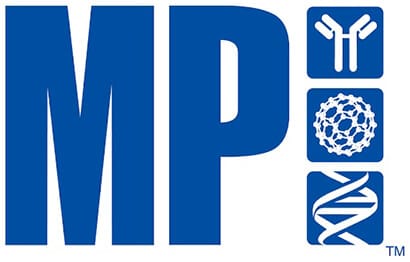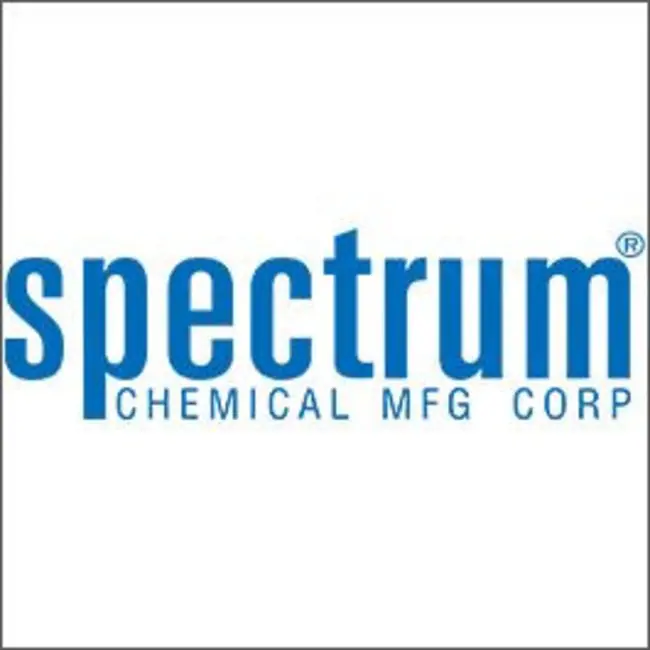GenScript Biotech
Showing 2201–2250 of 2554 results
-
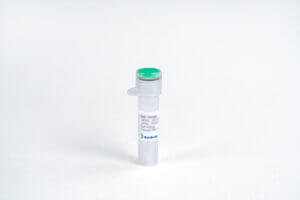
SARS-CoV-2 Spike protein (S1, T19R, G142D, del 156-157, R158G, L452R, T478K, D614G, P681R, His Tag)
$327.75 Add to cart View Product DetailsSARS-CoV-2 (Severe Acute Respiratory Syndrome Coronavirus 2) also known as 2019-nCoV (2019 Novel Coronavirus) is a virus that causes illnesses ranging from the common cold to severe diseases. As of May 2021, three sublineages have been found. Despite its name, B.1.617.3 was the first sublineage of this variant to be detected, in October 2020 in India. This sublineage has remained relatively uncommon compared to the two other sublineages, B.1.617.1 (also known as variant Kappa) and B.1.617.2 (also known as variant Delta), both of which were first detected in December 2020. This variant has the double mutations E484Q and L452R in the spike proteins. Emerging research suggests the variant may be more transmissible than previously evolved ones. Whether the effectiveness of currently-deployed vaccines is affected remains under investigation. Moreover, the sublineage B.1.617.2 has been redesignated as “variant of concern” (VOC-21APR-02) in May 2021, which spreads more quickly than the original version of the virus.
-
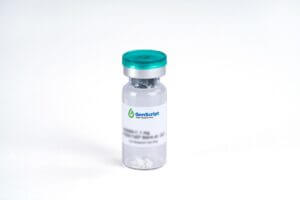
SARS-CoV-2 Spike protein (S1)
$1,811.25 Add to cart View Product DetailsSARS-CoV-2 (Severe Acute Respiratory Syndrome Coronavirus 2) also known as 2019-nCoV (2019 Novel Coronavirus) is a virus that causes illnesses ranging from the common cold to severe diseases. SARS-CoV-2 Spike Protein is composed of S1 domain and S2 domain. S1 contains a receptor-binding domain (RBD) that can specifically bind to angiotensin-converting enzyme 2 (ACE2), the receptor on target cells. S protein plays an important role in the induction of neutralizing-antibodies and T-cell responses, as well as protective immunity.
-

SARS-CoV-2 Spike protein (S1)
$327.75 Add to cart View Product DetailsSARS-CoV-2 (Severe Acute Respiratory Syndrome Coronavirus 2) also known as 2019-nCoV (2019 Novel Coronavirus) is a virus that causes illnesses ranging from the common cold to severe diseases. SARS-CoV-2 Spike Protein is composed of S1 domain and S2 domain. S1 contains a receptor-binding domain (RBD) that can specifically bind to angiotensin-converting enzyme 2 (ACE2), the receptor on target cells. S protein plays an important role in the induction of neutralizing-antibodies and T-cell responses, as well as protective immunity.
-

SARS-CoV-2 Spike protein RBD-HRP, BA.2 variant, His Tag
$465.75 Add to cart View Product DetailsBA.2 differs from BA.1 in its genetic sequence, including some amino acid differences in the spike protein and other proteins. Studies have shown that BA.2 has a growth advantage over BA.1. Studies are ongoing to understand the reasons for this growth advantage, but initial data suggest that BA.2 appears inherently more transmissible than BA.1, which currently remains the most common Omicron sublineage reported. This difference in transmissibility appears to be much smaller than, for example, the difference between BA.1 and Delta. Further, although BA.2 sequences are increasing in proportion relative to other Omicron sublineages (BA.1 and BA.1.1), there is still a reported decline in overall cases globally.
-

SARS-CoV-2 Spike protein RBD-HRP, BA.2 variant, His Tag
$6,210.00 Add to cart View Product DetailsBA.2 differs from BA.1 in its genetic sequence, including some amino acid differences in the spike protein and other proteins. Studies have shown that BA.2 has a growth advantage over BA.1. Studies are ongoing to understand the reasons for this growth advantage, but initial data suggest that BA.2 appears inherently more transmissible than BA.1, which currently remains the most common Omicron sublineage reported. This difference in transmissibility appears to be much smaller than, for example, the difference between BA.1 and Delta. Further, although BA.2 sequences are increasing in proportion relative to other Omicron sublineages (BA.1 and BA.1.1), there is still a reported decline in overall cases globally.
-

SARS-CoV-2 Spike protein RBD-HRP, BA.2 variant, His Tag
$103.50 Add to cart View Product DetailsBA.2 differs from BA.1 in its genetic sequence, including some amino acid differences in the spike protein and other proteins. Studies have shown that BA.2 has a growth advantage over BA.1. Studies are ongoing to understand the reasons for this growth advantage, but initial data suggest that BA.2 appears inherently more transmissible than BA.1, which currently remains the most common Omicron sublineage reported. This difference in transmissibility appears to be much smaller than, for example, the difference between BA.1 and Delta. Further, although BA.2 sequences are increasing in proportion relative to other Omicron sublineages (BA.1 and BA.1.1), there is still a reported decline in overall cases globally.
-

SARS-CoV-2 Spike protein RBD-HRP, BA.2 variant, His Tag
$1,811.25 Add to cart View Product DetailsBA.2 differs from BA.1 in its genetic sequence, including some amino acid differences in the spike protein and other proteins. Studies have shown that BA.2 has a growth advantage over BA.1. Studies are ongoing to understand the reasons for this growth advantage, but initial data suggest that BA.2 appears inherently more transmissible than BA.1, which currently remains the most common Omicron sublineage reported. This difference in transmissibility appears to be much smaller than, for example, the difference between BA.1 and Delta. Further, although BA.2 sequences are increasing in proportion relative to other Omicron sublineages (BA.1 and BA.1.1), there is still a reported decline in overall cases globally.
-

SARS-CoV-2 Spike protein RBD-HRP, Omicron Variant, His Tag
$465.75 Add to cart View Product DetailsSARS-CoV-2 (Severe Acute Respiratory
Syndrome Coronavirus 2) also known as 2019-nCoV (2019 Novel Coronavirus) is a virus that causes illnesses ranging from the common cold to severe diseases. Recently, the new B.1.1.529 variant was confirmed in South Africa and preliminary evidence suggests an increased risk of reinfection with this variant. The B.1.1.529 variant was first reported to WHO on 24 November 2021 and WHO has designated this variant as a VOC (Variant of Concern), named Omicron. There are more than 30 mutations in the spike protein. -

SARS-CoV-2 Spike protein RBD-HRP, Omicron Variant, His Tag
$6,210.00 Add to cart View Product DetailsSARS-CoV-2 (Severe Acute Respiratory
Syndrome Coronavirus 2) also known as 2019-nCoV (2019 Novel Coronavirus) is a virus that causes illnesses ranging from the common cold to severe diseases. Recently, the new B.1.1.529 variant was confirmed in South Africa and preliminary evidence suggests an increased risk of reinfection with this variant. The B.1.1.529 variant was first reported to WHO on 24 November 2021 and WHO has designated this variant as a VOC (Variant of Concern), named Omicron. There are more than 30 mutations in the spike protein. -

SARS-CoV-2 Spike protein RBD-HRP, Omicron Variant, His Tag
$103.50 Add to cart View Product DetailsSARS-CoV-2 (Severe Acute Respiratory
Syndrome Coronavirus 2) also known as 2019-nCoV (2019 Novel Coronavirus) is a virus that causes illnesses ranging from the common cold to severe diseases. Recently, the new B.1.1.529 variant was confirmed in South Africa and preliminary evidence suggests an increased risk of reinfection with this variant. The B.1.1.529 variant was first reported to WHO on 24 November 2021 and WHO has designated this variant as a VOC (Variant of Concern), named Omicron. There are more than 30 mutations in the spike protein. -

SARS-CoV-2 Spike protein RBD-HRP, Omicron Variant, His Tag
$1,811.25 Add to cart View Product DetailsSARS-CoV-2 (Severe Acute Respiratory
Syndrome Coronavirus 2) also known as 2019-nCoV (2019 Novel Coronavirus) is a virus that causes illnesses ranging from the common cold to severe diseases. Recently, the new B.1.1.529 variant was confirmed in South Africa and preliminary evidence suggests an increased risk of reinfection with this variant. The B.1.1.529 variant was first reported to WHO on 24 November 2021 and WHO has designated this variant as a VOC (Variant of Concern), named Omicron. There are more than 30 mutations in the spike protein. -

SARS-CoV-2 Spike protein RBD, Omicron Variant, His Tag
$2,070.00 Add to cart View Product DetailsSARS-CoV-2 (Severe Acute Respiratory
Syndrome Coronavirus 2) also known as 2019-nCoV (2019 Novel Coronavirus) is a virus that causes illnesses ranging from the common cold to severe diseases. Recently, the new B.1.1.529 variant was confirmed in South Africa and preliminary evidence suggests an increased risk of reinfection with this variant. The B.1.1.529 variant was first reported to WHO on 24 November 2021 and WHO has designated this variant as a VOC (Variant of Concern), named Omicron. There are more than 30 mutations in the spike protein. -

SARS-CoV-2 Spike protein RBD, Omicron Variant, His Tag
$327.75 Add to cart View Product DetailsSARS-CoV-2 (Severe Acute Respiratory
Syndrome Coronavirus 2) also known as 2019-nCoV (2019 Novel Coronavirus) is a virus that causes illnesses ranging from the common cold to severe diseases. Recently, the new B.1.1.529 variant was confirmed in South Africa and preliminary evidence suggests an increased risk of reinfection with this variant. The B.1.1.529 variant was first reported to WHO on 24 November 2021 and WHO has designated this variant as a VOC (Variant of Concern), named Omicron. There are more than 30 mutations in the spike protein. -

SARS-CoV-2 Spike protein S1, Omicron Variant, His Tag
$1,811.25 Add to cart View Product DetailsSARS-CoV-2 (Severe Acute Respiratory
Syndrome Coronavirus 2) also known as 2019-nCoV (2019 Novel Coronavirus) is a virus that causes illnesses ranging from the common cold to severe diseases. Recently, the new B.1.1.529 variant was confirmed in South Africa and preliminary evidence suggests an increased risk of reinfection with this variant. The B.1.1.529 variant was first reported to WHO on 24 November 2021 and WHO has designated this variant as a VOC (Variant of Concern), named Omicron. There are more than 30 mutations in the spike protein. -

SARS-CoV-2 Spike protein S1, Omicron Variant, His Tag
$327.75 Add to cart View Product DetailsSARS-CoV-2 (Severe Acute Respiratory
Syndrome Coronavirus 2) also known as 2019-nCoV (2019 Novel Coronavirus) is a virus that causes illnesses ranging from the common cold to severe diseases. Recently, the new B.1.1.529 variant was confirmed in South Africa and preliminary evidence suggests an increased risk of reinfection with this variant. The B.1.1.529 variant was first reported to WHO on 24 November 2021 and WHO has designated this variant as a VOC (Variant of Concern), named Omicron. There are more than 30 mutations in the spike protein. -
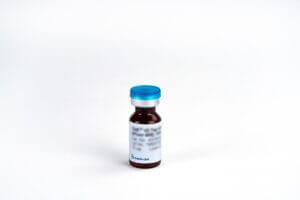
SARS-CoV-2 Spike S1 Antibody (HC2001), Human Chimeric
$2,587.50 Add to cart View Product DetailsThe product is specific for SARS-CoV-2 Spike Protein S1 subunit and its RBD domain.
-

SARS-CoV-2 Spike S1 Antibody (HC2001), Human Chimeric
$323.44 Add to cart View Product DetailsThe product is specific for SARS-CoV-2 Spike Protein S1 subunit and its RBD domain.
-

SARS-CoV-2 Spike S1 Antibody (hIgA2001), Human Chimeric
$2,960.10 Add to cart View Product DetailsThe product is specific for SARS-CoV-2 Spike Protein S1 subunit and its RBD domain.
-

SARS-CoV-2 Spike S1 Antibody (hIgA2001), Human Chimeric
$370.01 Add to cart View Product DetailsThe product is specific for SARS-CoV-2 Spike Protein S1 subunit and its RBD domain.
-
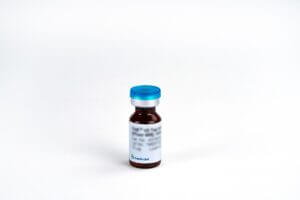
SARS-CoV-2 Spike S1 Antibody (hIgM2001), Human Chimeric
$2,960.10 Add to cart View Product DetailsThe product is specific for SARS-CoV-2 Spike Protein S1 subunit and its RBD domain.
-

SARS-CoV-2 Spike S1 Antibody (hIgM2001), Human Chimeric
$370.01 Add to cart View Product DetailsThe product is specific for SARS-CoV-2 Spike Protein S1 subunit and its RBD domain.
-
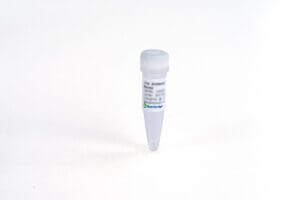
SCC (SC1), mAb, Mouse
$307.05 Add to cart View Product DetailsSquamous
cell carcinoma antigen (SCCA) is one protein member of the serine protease
inhibitor (Serpin) family. Expression of SCCA is elevated in cancers of the cervix, lung, head and neck, and liver. As a result,
it is a useful biomarker for aggressive squamous cell carcinoma (SCC). -

SCC (SC1), mAb, Mouse
$3,070.50 Add to cart View Product DetailsSquamous
cell carcinoma antigen (SCCA) is one protein member of the serine protease
inhibitor (Serpin) family. Expression of SCCA is elevated in cancers of the cervix, lung, head and neck, and liver. As a result,
it is a useful biomarker for aggressive squamous cell carcinoma (SCC). -
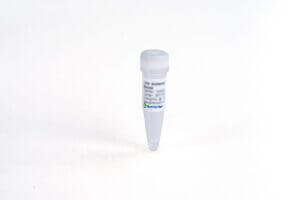
SCC (SC1), mAb, Mouse
$26,066.48 Add to cart View Product DetailsSquamous
cell carcinoma antigen (SCCA) is one protein member of the serine protease
inhibitor (Serpin) family. Expression of SCCA is elevated in cancers of the cervix, lung, head and neck, and liver. As a result,
it is a useful biomarker for aggressive squamous cell carcinoma (SCC). -

SCC (SC9), mAb, Mouse
$307.05 Add to cart View Product DetailsSquamous
cell carcinoma antigen (SCCA) is one protein member of the serine protease
inhibitor (Serpin) family. Expression of SCCA is elevated in cancers of the cervix, lung, head and neck, and liver. As a result,
it is a useful biomarker for aggressive squamous cell carcinoma (SCC). -

SCC (SC9), mAb, Mouse
$3,070.50 Add to cart View Product DetailsSquamous
cell carcinoma antigen (SCCA) is one protein member of the serine protease
inhibitor (Serpin) family. Expression of SCCA is elevated in cancers of the cervix, lung, head and neck, and liver. As a result,
it is a useful biomarker for aggressive squamous cell carcinoma (SCC). -

SCC (SC9), mAb, Mouse
$26,066.48 Add to cart View Product DetailsSquamous
cell carcinoma antigen (SCCA) is one protein member of the serine protease
inhibitor (Serpin) family. Expression of SCCA is elevated in cancers of the cervix, lung, head and neck, and liver. As a result,
it is a useful biomarker for aggressive squamous cell carcinoma (SCC). -

SCCA Antibody (SC4), mAb, Mouse
$318.26 Add to cart View Product DetailsSquamous
cell carcinoma antigen (SCCA) is one protein member of the serine protease
inhibitor (Serpin) family. Expression of SCCA is elevated in cancers of the cervix, lung, head and neck, and liver. As a result,
it is a useful biomarker for aggressive squamous cell carcinoma (SCC) -

SCCA Antibody (SC4), mAb, Mouse
$3,184.35 Add to cart View Product DetailsSquamous
cell carcinoma antigen (SCCA) is one protein member of the serine protease
inhibitor (Serpin) family. Expression of SCCA is elevated in cancers of the cervix, lung, head and neck, and liver. As a result,
it is a useful biomarker for aggressive squamous cell carcinoma (SCC) -
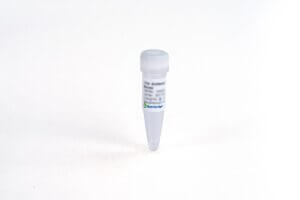
SCCA Antibody (SC4), mAb, Mouse
$27,069.56 Add to cart View Product DetailsSquamous
cell carcinoma antigen (SCCA) is one protein member of the serine protease
inhibitor (Serpin) family. Expression of SCCA is elevated in cancers of the cervix, lung, head and neck, and liver. As a result,
it is a useful biomarker for aggressive squamous cell carcinoma (SCC) -

sCD40L, Human
$1,030.69 Add to cart View Product DetailsCD40 ligand, CD40L (also known as CD154, TRAP or gp39), is a 261 amino acid type II transmembrane glycoprotein belonging to the TNF family, CD40L is expressed predominantly on activated CD4+ T lymphocytes, and also found in other types of cells, like NK cells, mast cells, basophils and eosinophils. Human CD40L shares 78% amino acid identity with its mouse counterpart. The receptor of CD40L is CD40, a type I transmembrane glycoprotein belonging to the TNF receptor family. CD40 is expressed on B lymphocytes, monocytes, dendritic cells and thymic epithelium. Although all monomeric, dimeric and trimeric forms of soluble CD40L can bind to CD40, the trimeric form of soluble CD40L has the most potent biological activity through oligomerization of cell surface CD40, a common feature of TNF receptor family members. CD40L mediates a range of activities on B cells including induction of activation-associated surface antigen, entry into cell cycle, isotype switching and Ig secretion and memory generation. CD40-CD40L interaction also plays important roles in monocyte activation and dendritic cell maturation.
-

sCD40L, Human
$155.25 Add to cart View Product DetailsCD40 ligand, CD40L (also known as CD154, TRAP or gp39), is a 261 amino acid type II transmembrane glycoprotein belonging to the TNF family, CD40L is expressed predominantly on activated CD4+ T lymphocytes, and also found in other types of cells, like NK cells, mast cells, basophils and eosinophils. Human CD40L shares 78% amino acid identity with its mouse counterpart. The receptor of CD40L is CD40, a type I transmembrane glycoprotein belonging to the TNF receptor family. CD40 is expressed on B lymphocytes, monocytes, dendritic cells and thymic epithelium. Although all monomeric, dimeric and trimeric forms of soluble CD40L can bind to CD40, the trimeric form of soluble CD40L has the most potent biological activity through oligomerization of cell surface CD40, a common feature of TNF receptor family members. CD40L mediates a range of activities on B cells including induction of activation-associated surface antigen, entry into cell cycle, isotype switching and Ig secretion and memory generation. CD40-CD40L interaction also plays important roles in monocyte activation and dendritic cell maturation.
-

SCF, Human (P. pastoris-expressed)
$1,177.31 Add to cart View Product DetailsStem cell factor (also known as SCF, KIT-ligand, KL, or steel factor) is a cytokine that binds to the c-KIT receptor (CD117). SCF can exist both as a transmembrane protein and a soluble protein. It stimulates the proliferation of myeloid, erythroid, and lymphoid progenitors in bone marrow cultures and has been shown to act synergistically with colony stimulating factors. SCF plays an important role in the hematopoiesis during embryonic development. SCF can regulates HSCs in the stem cell niche in the bone marrow. SCF has been shown to increase the survival of HSCs in vitro and contributes to the self-renewal and maintenance of HSCs in-vivo.
-

SCF, Human (P. pastoris-expressed)
$86.25 Add to cart View Product DetailsStem cell factor (also known as SCF, KIT-ligand, KL, or steel factor) is a cytokine that binds to the c-KIT receptor (CD117). SCF can exist both as a transmembrane protein and a soluble protein. It stimulates the proliferation of myeloid, erythroid, and lymphoid progenitors in bone marrow cultures and has been shown to act synergistically with colony stimulating factors. SCF plays an important role in the hematopoiesis during embryonic development. SCF can regulates HSCs in the stem cell niche in the bone marrow. SCF has been shown to increase the survival of HSCs in vitro and contributes to the self-renewal and maintenance of HSCs in-vivo.
-

SCF, Human (P. pastoris-expressed)
$155.25 Add to cart View Product DetailsStem cell factor (also known as SCF, KIT-ligand, KL, or steel factor) is a cytokine that binds to the c-KIT receptor (CD117). SCF can exist both as a transmembrane protein and a soluble protein. It stimulates the proliferation of myeloid, erythroid, and lymphoid progenitors in bone marrow cultures and has been shown to act synergistically with colony stimulating factors. SCF plays an important role in the hematopoiesis during embryonic development. SCF can regulates HSCs in the stem cell niche in the bone marrow. SCF has been shown to increase the survival of HSCs in vitro and contributes to the self-renewal and maintenance of HSCs in-vivo.
-

SCF, Mouse
$1,177.31 Add to cart View Product DetailsStem cell factor (also known as SCF, KIT-ligand, KL, or steel factor) is a cytokine that binds to the c-KIT receptor (CD117). SCF can exist both as a transmembrane protein and a soluble protein. It stimulates the proliferation of myeloid, erythroid, and lymphoid progenitors in bone marrow cultures and has been shown to act synergistically with colony stimulating factors. SCF plays an important role in the hematopoiesis during embryonic development. SCF can regulates HSCs in the stem cell niche in the bone marrow. SCF has been shown to increase the survival of HSCs in vitro and contributes to the self-renewal and maintenance of HSCs in-vivo.
-

SCF, Mouse
$86.25 Add to cart View Product DetailsStem cell factor (also known as SCF, KIT-ligand, KL, or steel factor) is a cytokine that binds to the c-KIT receptor (CD117). SCF can exist both as a transmembrane protein and a soluble protein. It stimulates the proliferation of myeloid, erythroid, and lymphoid progenitors in bone marrow cultures and has been shown to act synergistically with colony stimulating factors. SCF plays an important role in the hematopoiesis during embryonic development. SCF can regulates HSCs in the stem cell niche in the bone marrow. SCF has been shown to increase the survival of HSCs in vitro and contributes to the self-renewal and maintenance of HSCs in-vivo.
-

SCF, Mouse
$155.25 Add to cart View Product DetailsStem cell factor (also known as SCF, KIT-ligand, KL, or steel factor) is a cytokine that binds to the c-KIT receptor (CD117). SCF can exist both as a transmembrane protein and a soluble protein. It stimulates the proliferation of myeloid, erythroid, and lymphoid progenitors in bone marrow cultures and has been shown to act synergistically with colony stimulating factors. SCF plays an important role in the hematopoiesis during embryonic development. SCF can regulates HSCs in the stem cell niche in the bone marrow. SCF has been shown to increase the survival of HSCs in vitro and contributes to the self-renewal and maintenance of HSCs in-vivo.
-

SCF, Rat (HEK 293-expressed)
$86.25 Add to cart View Product DetailsStem cell factor (also known as SCF, KIT-ligand, KL, or steel factor) is a cytokine that binds to the c-KIT receptor (CD117). SCF can exist both as a transmembrane protein and a soluble protein. It stimulates the proliferation of myeloid, erythroid, and lymphoid progenitors in bone marrow cultures and has been shown to act synergistically with colony stimulating factors. SCF plays an important role in the hematopoiesis during embryonic development. SCF can regulates HSCs in the stem cell niche in the bone marrow. SCF has been shown to increase the survival of HSCs in vitro and contributes to the self-renewal and maintenance of HSCs in-vivo.
-

SCF, Rat (HEK 293-expressed)
$155.25 Add to cart View Product DetailsStem cell factor (also known as SCF, KIT-ligand, KL, or steel factor) is a cytokine that binds to the c-KIT receptor (CD117). SCF can exist both as a transmembrane protein and a soluble protein. It stimulates the proliferation of myeloid, erythroid, and lymphoid progenitors in bone marrow cultures and has been shown to act synergistically with colony stimulating factors. SCF plays an important role in the hematopoiesis during embryonic development. SCF can regulates HSCs in the stem cell niche in the bone marrow. SCF has been shown to increase the survival of HSCs in vitro and contributes to the self-renewal and maintenance of HSCs in-vivo.
-

SDF-1α/CXCL12, Human
$2,018.25 Add to cart View Product DetailsStromal-Cell Derived Factor-1 alpha/ CXCL12 (SDF-1α) and SDF-1β, members of the chemokine α subfamily that lack the ELR domain, were initially identified using the signal sequence trap cloning strategy from a mouse bone-marrow stromal cell line. These proteins were subsequently also cloned from a human stromal cell line as cytokines that supported the proliferation of a stromal cell-dependent pre-B-cell line. SDF-1α and SDF-1β cDNAs encode precursor proteins of 89 and 93 amino acid residues, respectively. Both SDF-1α and SDF-1β are encoded by a single gene and arise by alternative splicing. The two proteins are identical except for the four amino acid residues that are present in the carboxy-terminus of SDF-1β and absent from SDF-1α. SDF-1/PBSF is highly conserved between species, with only one amino acid substitution between the mature human and mouse proteins. SDF-1/PBSF acts via the chemokine receptor CXCR4 and has been shown to be a chemoattractant for T-lymphocytes, monocytes, pro- and pre- B cells, but not neutrophils. Mice lacking SDF-1 or CXCR4 have been found to have impaired B-lymphopoiesis, myelopoiesis, vascular development, cardiogenesis and abnormal neuronal cell migration and patterning in the central nervous system.
-

SDF-1α/CXCL12, Human
$155.25 Add to cart View Product DetailsStromal-Cell Derived Factor-1 alpha/ CXCL12 (SDF-1α) and SDF-1β, members of the chemokine α subfamily that lack the ELR domain, were initially identified using the signal sequence trap cloning strategy from a mouse bone-marrow stromal cell line. These proteins were subsequently also cloned from a human stromal cell line as cytokines that supported the proliferation of a stromal cell-dependent pre-B-cell line. SDF-1α and SDF-1β cDNAs encode precursor proteins of 89 and 93 amino acid residues, respectively. Both SDF-1α and SDF-1β are encoded by a single gene and arise by alternative splicing. The two proteins are identical except for the four amino acid residues that are present in the carboxy-terminus of SDF-1β and absent from SDF-1α. SDF-1/PBSF is highly conserved between species, with only one amino acid substitution between the mature human and mouse proteins. SDF-1/PBSF acts via the chemokine receptor CXCR4 and has been shown to be a chemoattractant for T-lymphocytes, monocytes, pro- and pre- B cells, but not neutrophils. Mice lacking SDF-1 or CXCR4 have been found to have impaired B-lymphopoiesis, myelopoiesis, vascular development, cardiogenesis and abnormal neuronal cell migration and patterning in the central nervous system.
-

SDF-1α/CXCL12, Mouse
$194.06 Add to cart View Product DetailsStromal-Cell Derived Factor-1 alpha/ CXCL12 (SDF-1α) and SDF-1β, members of the chemokine α subfamily that lack the ELR domain, were initially identified using the signal sequence trap cloning strategy from a mouse bone-marrow stromal cell line. These proteins were subsequently also cloned from a human stromal cell line as cytokines that supported the proliferation of a stromal cell-dependent pre-B-cell line. SDF-1α and SDF-1β cDNAs encode precursor proteins of 89 and 93 amino acid residues, respectively. Both SDF-1α and SDF-1β are encoded by a single gene and arise by alternative splicing. The two proteins are identical except for the four amino acid residues that are present in the carboxy-terminus of SDF-1β and absent from SDF-1α. SDF-1/PBSF is highly conserved between species, with only one amino acid substitution between the mature human and mouse proteins. SDF-1/PBSF acts via the chemokine receptor CXCR4 and has been shown to be a chemoattractant for T-lymphocytes, monocytes, pro- and pre- B cells, but not neutrophils. Mice lacking SDF-1 or CXCR4 have been found to have impaired B-lymphopoiesis, myelopoiesis, vascular development, cardiogenesis and abnormal neuronal cell migration and patterning in the central nervous system.
-

SDF-1α/CXCL12, Mouse
$94.88 Add to cart View Product DetailsStromal-Cell Derived Factor-1 alpha/ CXCL12 (SDF-1α) and SDF-1β, members of the chemokine α subfamily that lack the ELR domain, were initially identified using the signal sequence trap cloning strategy from a mouse bone-marrow stromal cell line. These proteins were subsequently also cloned from a human stromal cell line as cytokines that supported the proliferation of a stromal cell-dependent pre-B-cell line. SDF-1α and SDF-1β cDNAs encode precursor proteins of 89 and 93 amino acid residues, respectively. Both SDF-1α and SDF-1β are encoded by a single gene and arise by alternative splicing. The two proteins are identical except for the four amino acid residues that are present in the carboxy-terminus of SDF-1β and absent from SDF-1α. SDF-1/PBSF is highly conserved between species, with only one amino acid substitution between the mature human and mouse proteins. SDF-1/PBSF acts via the chemokine receptor CXCR4 and has been shown to be a chemoattractant for T-lymphocytes, monocytes, pro- and pre- B cells, but not neutrophils. Mice lacking SDF-1 or CXCR4 have been found to have impaired B-lymphopoiesis, myelopoiesis, vascular development, cardiogenesis and abnormal neuronal cell migration and patterning in the central nervous system.
-

SDF-1β/CXCL12, Human
$2,018.25 Add to cart View Product DetailsStromal-Cell Derived Factor-1 beta (SDF-1β), also known as SCYB12, PBSF and CXCL12, is an 8.3 kDa, heparin-binding member of the CXC (or alpha) family of chemokines and signal through the CXCR4 receptor. SDF-1α and β are reported to be monomers at neutral pH and physiologic ionic strength, On the cell surface, this may well facilitate SDF-1 interaction with its two receptors, CXCR4 and syndecan4. Heparin sulfate is known to protect SDF-1 from proteolysis, and CXCR4 exists constitutively as a dimer. Among its many functions, CXCL12 is known to influence lymphopoiesis, regulate patterning and cell number of neural progenitors, and promote angiogenesis (12, 13). It also enhances the survival of myeloid progenitor cells
-

SDF-1β/CXCL12, Human
$155.25 Add to cart View Product DetailsStromal-Cell Derived Factor-1 beta (SDF-1β), also known as SCYB12, PBSF and CXCL12, is an 8.3 kDa, heparin-binding member of the CXC (or alpha) family of chemokines and signal through the CXCR4 receptor. SDF-1α and β are reported to be monomers at neutral pH and physiologic ionic strength, On the cell surface, this may well facilitate SDF-1 interaction with its two receptors, CXCR4 and syndecan4. Heparin sulfate is known to protect SDF-1 from proteolysis, and CXCR4 exists constitutively as a dimer. Among its many functions, CXCL12 is known to influence lymphopoiesis, regulate patterning and cell number of neural progenitors, and promote angiogenesis (12, 13). It also enhances the survival of myeloid progenitor cells
-

Shh (C24II), Human
$1,177.31 Add to cart View Product DetailsSonic Hedgehog (Shh) is a member of the Hedgehog (Hh) family of highly conserved proteins which are widely represented throughout the animal kingdom. In mammal, there are three related Hh proteins, Sonic (Shh), Desert (Dhh) and Indian (Ihh). They share a high degree of amino-acid sequence identity (e.g., Shh and Ihh are 93% identical). Sonic Hedgehog plays a role in cell growth, cell specialization, and the normal shaping (patterning) of the body. Shh is also important for development of the brain and spinal cord (central nervous system), eyes, limbs, and many other parts of the body.
-

Shh (C24II), Human
$68.14 Add to cart View Product DetailsSonic Hedgehog (Shh) is a member of the Hedgehog (Hh) family of highly conserved proteins which are widely represented throughout the animal kingdom. In mammal, there are three related Hh proteins, Sonic (Shh), Desert (Dhh) and Indian (Ihh). They share a high degree of amino-acid sequence identity (e.g., Shh and Ihh are 93% identical). Sonic Hedgehog plays a role in cell growth, cell specialization, and the normal shaping (patterning) of the body. Shh is also important for development of the brain and spinal cord (central nervous system), eyes, limbs, and many other parts of the body.
-

Shh (C24II), Human
$155.25 Add to cart View Product DetailsSonic Hedgehog (Shh) is a member of the Hedgehog (Hh) family of highly conserved proteins which are widely represented throughout the animal kingdom. In mammal, there are three related Hh proteins, Sonic (Shh), Desert (Dhh) and Indian (Ihh). They share a high degree of amino-acid sequence identity (e.g., Shh and Ihh are 93% identical). Sonic Hedgehog plays a role in cell growth, cell specialization, and the normal shaping (patterning) of the body. Shh is also important for development of the brain and spinal cord (central nervous system), eyes, limbs, and many other parts of the body.
-

Shh (C25II), Mouse
$1,177.31 Add to cart View Product DetailsSonic Hedgehog (Shh) is a member of the Hedgehog (Hh) family of highly conserved proteins which are widely represented throughout the animal kingdom. In mammal, there are three related Hh proteins, Sonic (Shh), Desert (Dhh) and Indian (Ihh). They share a high degree of amino-acid sequence identity (e.g., Shh and Ihh are 93% identical). Sonic Hedgehog plays a role in cell growth, cell specialization, and the normal shaping (patterning) of the body. Shh is also important for development of the brain and spinal cord (central nervous system), eyes, limbs, and many other parts of the body.
